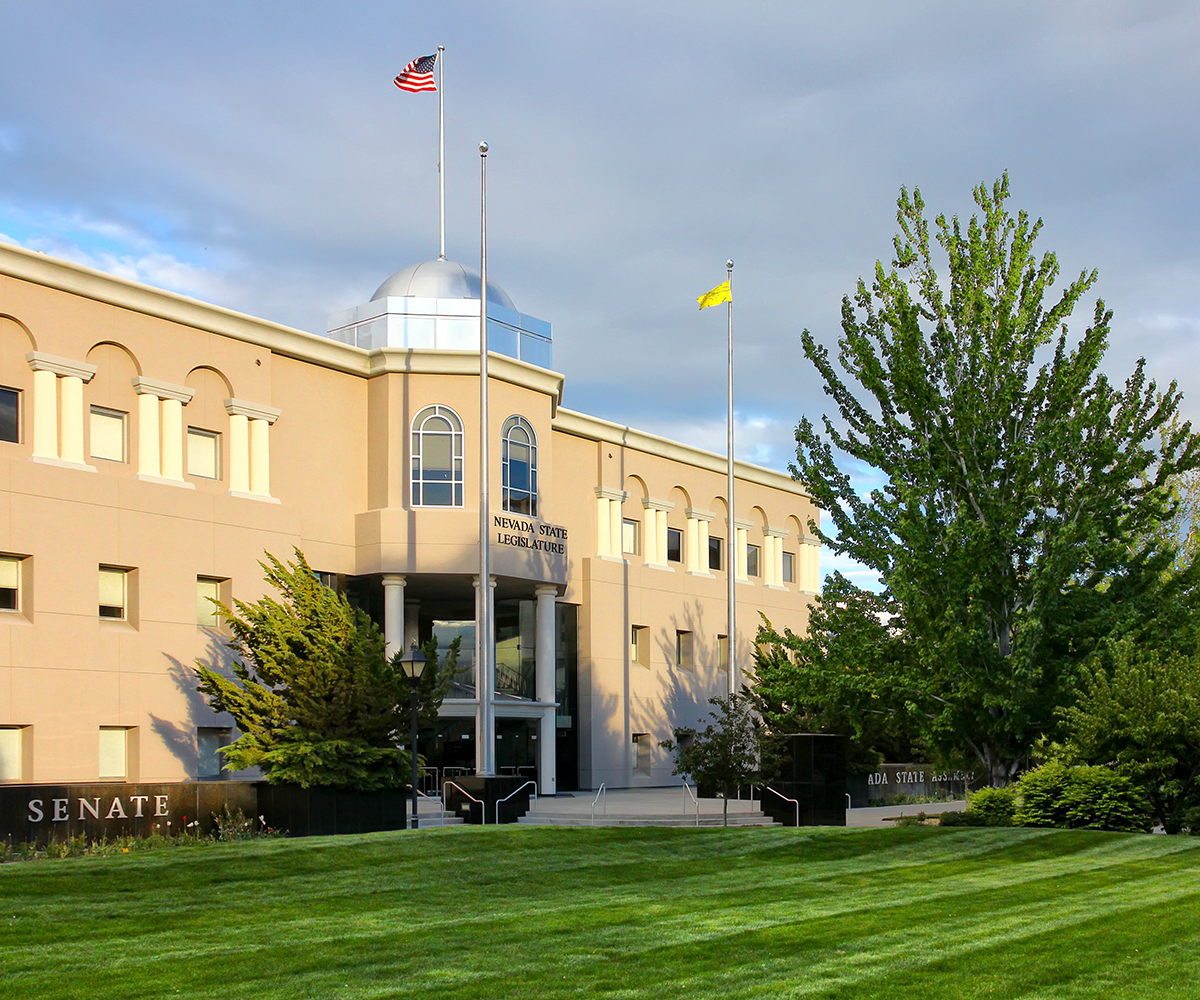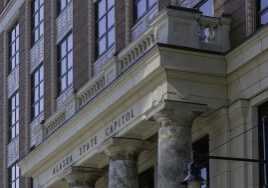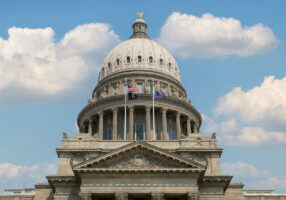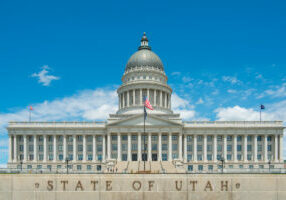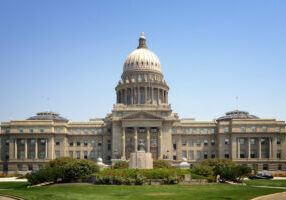Although the governor and both houses of the Nevada Legislature are controlled by the Democratic Party, no one should assume that party unity will make the upcoming legislative session easy.
With limited budgets, lawmakers face difficult decisions on how to fund a variety of education programs, among other major priorities. As they face pressure from opposite ends of the political spectrum, they will also have to decide on whether to raise the minimum wage – and if so, by how much.
They will also determine what to do about a list of recommended criminal justice reforms, some of which would anger law enforcement officials.
Below is a summary of the most compelling storylines arising in the Legislature in education, health care, energy, tax policy, and much more.
Education
Funding formula: For years, groups have attempted to update Nevada’s 51-year-old education funding formula, but providing “adequate” funding could cost hundreds of millions more dollars every two years. While Gov. Steve Sisolak is open to working on the issue, there is no consensus plan yet. It is unsure whether legislators are interested in raising the funds necessary to make a significant stride toward this goal during this session.
Read by Grade Three: A policy developed by a former Republican governor states that if this year’s third-grade students cannot read at grade level by the end of the school year, they will be held back. Currently, there are an estimated 9,000 students at risk of grade retention. Last year, Democrats strived to change this high-stakes provision, but couldn’t under the governor at the time. However, Sisolak has suggested he supports this endeavor.
Opportunity Scholarships: To maintain and increase the number of private school scholarship recipients, advocates of this program are seeking an additional $20 million in tax credit capacity. However, Sisolak says he would prefer that the funding goes to public schools, even though the money comes from private donations from businesses in exchange for tax credits. Advocates claim that if the governor doesn’t act, students will be kicked out of the private schools they like. Assembly Speaker Jason Frierson has been quoted saying lawmakers “have to be mindful of the children and the families that have taken advantage of this opportunity that would be negatively impacted if it were taken away from them.” However, he also stressed that even with the scholarships, some families still cannot afford private school tuition and would benefit greatly from this funding.
Healthcare
Surprise emergency room billing: Doctors, hospitals, and insurance companies all agree that patients shouldn’t have to worry about thousands of dollars worth of emergency room bills if they unintentionally end up in a hospital or see a physician who is not included in their network. This session, a compromise may be reached, taking the patient out of the middle and establishing a formula to settle disagreements between insurers and providers. Addressing an issue he raised in his campaign health care platform, Sisolak has budgeted extra funding for state workers to help in this issue.
Drug prices: Several lawmakers and Sisolak express concern over the rising prices of prescription drugs and a desire to “rein in” pharmaceutical companies. With last session’s landmark diabetes drug bill, there is uncertainty as to what lawmakers will do. Sisolak has indicated support for establishing a drug purchasing coalition called Silver State Scripts, along with a Patient Protection Commission to evaluate drug costs and other health care issues.
Opioids: Following an outcry from the physician community over last session’s wide-ranging opioid bill backed by former Gov. Brian Sandoval, legislators may consider several adjustments to the law. Under one bill, the State Board of Pharmacy would be required to disseminate an explanation or technical advisory bulletin to prescribers of controlled substances, including doctors, nurses, dentists, and more, about the opioid law and related regulations. Another bill would make changes to the database for prescription drug monitoring and accessibility of it.
Medicaid reimbursement: Sisolak’s proposed budget includes a 15% increase for the Pediatric Intensive Care Unit and a 25% increase for the Neonatal Intensive Care Unit per diem rates for Medicaid. He also proposes an increase in the rate for supported living arrangement services, personal care services, personal assistance services, and the Community Options for the Elderly program. However, other medical and mental health providers may also ask for increased Medicaid reimbursement rates.
Stabilizing the individual market: With the future of the Affordable Care Act depending on the outcome of the Texas vs. Azar case, Democratic legislators have shown great interest in continuing to codify parts of the federal health care law into state law. While efforts to preserve the ACA in state law may receive more pushback, other legislation adding the ACA’s protections for patients with pre-existing conditions into state law would likely gain bipartisan support.
Medicaid buy-in: Earlier this month, Assemblyman Mike Sprinkle said in an interview that he plans to reintroduce his Medicaid buy-in legislation from last session, which was vetoed by then-Gov. Sandoval. With this bill, Nevadans could purchase a Medicaid look-alike plan, available for purchase by “pretty much everybody,” according to Sprinkle. Additionally, employers could also buy into a group plan. In regards to how it would be administered, Sprinkle said either Nevada Medicaid could run the plan itself or contract with a managed care organization. Sisolak has stated that he is uncertain whether he would have signed Sprinkle’s 2017 bill in the form it was in at the time.
Energy
Renewable standards: It’s not whether Nevada’s Renewable Portfolio Standard — currently set at a 25% goal by 2025 — will increase, the question for the 2019 Legislature is how high it will go. Prior to the session, Senate Majority Leader Kelvin Atkinson said he plans to push legislation moving the RPS target to 100% over time. During his State of the State address, Sisolak said he would sign legislation raising the standard to 50% by 2030 at a minimum. One area to keep an eye on is whether lawmakers will require businesses to meet higher renewable standards, including MGM Resorts and Caesars Entertainment, which have departed NV Energy’s service.
704B: Although a ballot question challenging NV Energy’s electric market monopoly was defeated during the 2018 election, legislators will focus on another major issue for the utility – a 2001 law that has allowed several large businesses to depart utility service and use the open market to purchase power. 704B is the resulting Nevada Revised Statute. With few details, Democratic Sen. Chris Brooks said he submitted a bill draft request to amend the exit process for businesses, wanting to incorporate more transparency and predictability into the process.
Land & Water
State action: The Department of Conservation and Natural Resources has proposed three bills aimed at making adjustments in Nevada’s water law. According to state regulators, this legislation would provide much-needed flexibility in how water is appropriated and managed. Opponents will likely argue that the bills infringe on property rights or enable unsustainable development. As for one bill allowing water regulators to use mitigation plans, rural officials and environmental groups worry this could enable the Las Vegas pipeline.
Over-appropriation: Across Nevada, there are more rights to water than there is sustainable drinking water. This issue, known as over-appropriation, has been the subject of several regulatory actions and court cases. The Senate Committee on Natural Resources has introduced a bill to address this problem by preventing state regulators from commandeering all available water by safeguarding 10% as a reserve.
Criminal Justice Reform
Reducing penalties: A third party completed a comprehensive audit of Nevada’s criminal justice system for the past year and recommended 25 policy changes. The suggested changes include reducing penalties for burglaries and drug crimes, which could save the state an estimated $640 million in prison costs over ten years. This approach has been opposed by several officials and prosecutors throughout the state’s law enforcement community. The critical question here is which, if any, suggestions will be pursued.
Death penalty: A failed bill to end capital punishment from the last session is bound to arise again this year. The notorious mandated execution of Scott Dozier, where the execution was called off twice and Scott took his own life, has certainly brought this issue back into the public psyche. Assembly Speaker Jason Frierson has indicated “heavy lifting” would be required to push legislation and is not confident as to its current movement. Sisolak has publicly condemned the death penalty, though he has historically gone back and forth on this topic.
Marsy’s Law: A “crime victims bill of rights” was added to the Nevada Constitution in 2018, but further legislative direction remains unclear. Sisolak has allocated $15 million to handle all costs, including the loss of court fee revenue because the law demands that defendants pay restitution before other fees. As seen across the nation, this provision could face legal obstacles in this session.
Tax Policy
Maintaining payroll tax rate: Sisolak’s budget largely depends on a continued amount of the Modified Business Tax (MBT or payroll tax) even though a 2015 promise was made allowing the rate to decrease as other tax revenues did well. Maintaining the current rate will add $100 million to the state general fund. Among other groups, the Nevada Federation of Independent Business has been lobbying for the anticipated tax break. If the governor’s current plan is considered a tax increase, it would require at least a two-thirds vote to be approved – which would require the Democratic majority to steal at least one Senate Republican for passage.
Property Taxes: In the past, the state’s property tax formula has been subject to disputes and will likely come to a head again this session. Returning is Sen. Julia Ratti’s SJR14, which attempts to address a portion of the formula, by adjusting provisions related to depreciation on buildings or structures and equalizing the tax burden between older and newer properties.
Labor
Minimum wage: In 2017, lawmakers passed a bill, later vetoed by then-Gov. Sandoval, that would have raised the state minimum wage from $8.25 to $12 an hour. The bill is sure to be resurrected this session with a Democrat governor who has publicly endorsed a minimum wage in the $12 range, although possibly with the increase phased in over several years.
State collective bargaining: In his State of the State address, Sisolak indicated his desire to allow state workers to collectively bargain in the future. Such a bill could potentially come with a considerable cost, although it has not been included in the state’s budget for the upcoming two-year period.
Paid sick leave: A bill draft requested by state Sen. Joyce Woodhouse seeks to require some private employers to allow paid sick leave to full-time employees in some circumstances. Sisolak has voiced his support for such a bill, though Sandoval vetoed a similar bill in the 2018 session, saying he had concerns that such a measure would hurt small businesses and thought such a decision should be up to the employers themselves.
Voting
Same-day voter registration: Sisolak has expressed his support for allowing voters the possibility of registering to vote on the same day as casting a ballot. In the 2018 session, a proposed bill would have established various locations where people would have the opportunity to register while casting a vote, but the then-governor vetoed the measure.
Extending early voting: Nevada currently has a two-week early voting period, and Sisolak has indicated that he favors extending the early voting period by a week or two.
Marijuana
Cannabis Compliance Board: The governor has assigned a group to create a “Cannabis Compliance Board.” To be modeled after the Gaming Control Board, the review group would have the potential to alter current marijuana regulatory efforts, which have recently attracted controversy over secretive methods of assigning 61 new dispensary licenses in 2018. Governor Sisolak has proposed a more public process of picking license winners, similar to the state’s current protocol for assigning casino licenses.
Marijuana Banking: Nevada lawmakers have requested measures to address the murky marijuana banking industry, which has operated on an almost all-cash basis because of federal regulations that make the possession of marijuana illegal. A proposed bill has even reflected the idea of a marijuana stock exchange.
Rainy Day Fund: All revenue from the current 10% marijuana excise tax has been mandated to be sent into a Rainy Day reserve fund, but Sisolak has specified his intentions to move those funds into the Millennium Scholarship, as well as to school safety measures, during the coming two-year period. Sen. Dallas Harris has been attempting to divert over $100 million to educational costs throughout the next two years. At the end of last year, the Rainy Day Fund reached a record balance of $293 million.
Guns
Background checks: Although Democrats have a plan to implement a 2016 ballot initiative requiring most private gun sales and transfers to undergo background checks, they have yet to share details on any plans for actual implementation. Before session, Sisolak and Attorney General Aaron Ford have made public their plans to actually implement the “unenforceable” ballot measure even as the FBI has refused to process the background checks. The governor has since refrained from elaborating on any concrete methods of implementation, citing “sensitive” talks.
Bump stocks: Joined by legislators, the governor is expected to seek a ban on bump stocks. The devices enable a firearm to simulate the rapid fire of an automatic weapon and were used in the 2017 Las Vegas mass shooting.

